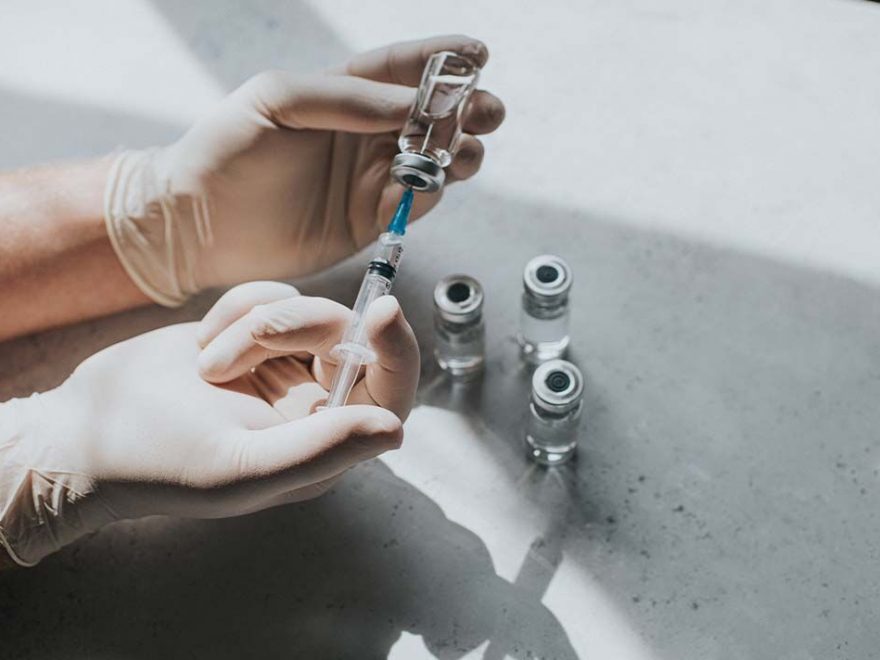What is dementia?
The number of dementia cases is set to reach more than 150 million by 2050.
With no cure in sight, scientists continue to focus on uncovering ways on how to minimise the risk of this happening.
Fortunately, a new vaccine could reduce or even prevent the devastating impact of Alzheimer’s disease, according to research.
The jab, designed to target a protein involved in the most common type of dementia, helped eliminate toxic cells in mice with the brain condition.
The findings showed mice had fewer amyloid plaques and less inflammation in their brain tissue after the SAGP vaccination.
READ MORE Over half a tablespoon of olive oil per day could slash risk of dementia death

Furthermore, the animal models also showed improvement in behaviour and awareness.
The new jab has been developed by researchers at Juntendo University Graduate School of Medicine in Japan.
Study lead author Dr Chieh-Lun Hsiao said: “Alzheimer’s disease now accounts for 50 percent to 70 per cent of dementia patients worldwide.
“Our study’s novel vaccine test in mice points to a potential way to prevent or modify the disease. The future challenge will be to achieve similar results in humans.

“If the vaccine could prove to be successful in humans, it would be a big step forward towards delaying disease progression or even prevention of this disease.”
The jab showed promising results on more than one fronts. For example, people in the late stage of Alzheimer’s disease usually lack anxiety, which means they are unaware of the things around them.
However, the mice who received the vaccine had anxiety, which meant they were more cautious and more aware of their surroundings – a sign that could indicate a lessening of the disease.
Furthermore, several inflammatory biomarkers of Alzheimer’s disease were also reduced after the vaccine.
We use your sign-up to provide content in ways you’ve consented to and to improve our understanding of you. This may include adverts from us and 3rd parties based on our understanding. You can unsubscribe at any time. More info
Don’t miss…
Over half a tablespoon of olive oil per day could slash risk of dementia death[STUDY]
One minute at-home dementia test could help identify the mind-robbing condition[TEST]
Six dementia signs that may become ‘more pronounced’ in the summer[SIGNS]

The SAGP protein is located very near to brain cells called microglia, which play a part in the immune defence of the central nervous system.
These cells help clear damaging plaque formed by proteins; however, they also trigger brain inflammation that can damage neurons and worsen cognitive decline.
In Alzheimer’s disease, a build-up of brain proteins called amyloid beta peptides clump together forming plaques that collect between neurons and disrupt cell function.
Dr Hsiao said: “Earlier studies using different vaccines to treat Alzheimer’s disease in mouse models have been successful in reducing amyloid plaque deposits and inflammatory factors, however, what makes our study different is that our SAGP vaccine also altered the behaviour of these mice for the better.”
The research team explained that the SAGP protein is usually “highly elevated” in microglia, which means that microglia are very important cells to target in Alzheimer’s disease.
Dr Hsiao added: “By removing microglia that are in the activation state, the inflammation in the brain may also be controlled.
“A vaccine could target activated microglia and remove these toxic cells, ultimately repairing the deficits in behaviour suffered in Alzheimer’s disease.”
The findings were presented at the American Heart Association’s Basic Cardiovascular Sciences Scientific Sessions in Boston, Massachusetts, but the jab is yet to be tested in humans.
Source: Read Full Article
